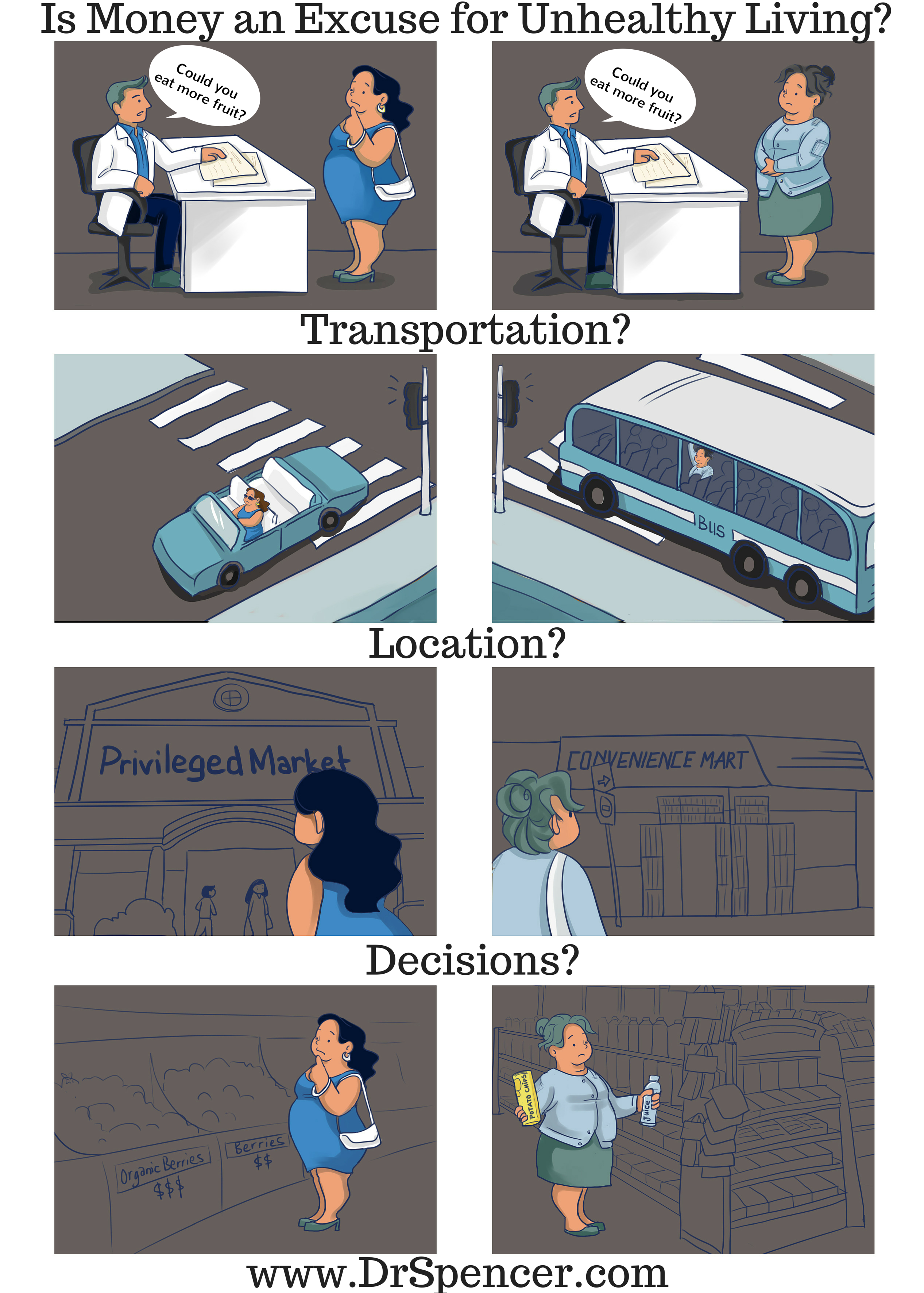About a month ago I wrote about how you can eat healthy food for cheaper than McDonald’s. While it is easy for me in my comfy home typing on my MacBook to discuss why there should be no excuses for not eating healthy foods in regards to money, it goes much deeper than the superficial costs shown in the article above. Let’s look at this scenario comparing a wealthy woman and a woman who can barely make ends meet.
I have actually been the doctor in both scenarios. When I was an intern fresh out of medical school, I had patients who took the bus to my clinic. They did not have a car. I used to think that cheap healthy eating meant getting frozen and canned vegetables. That helps but when I asked them about getting more fruits and vegetables in their diets, it wasn’t even about affording these foods. It was about actually getting to a supermarket (food deserts) and being able to bring the groceries back in non difficult manner. This was not something I was capable of solving at the time.
Look at the last picture. The wealthy woman’s biggest decision is purchasing organic or conventional berries. The other lady has the choice of some potato chips and juice (or other crappy processed foods). This is a big difference that many of us just don’t even see or realize (took me 25 years!).
We must think how deep this issue runs with many things in life. I wrote about how obesity may not be the simple choice that many make it out to be. Socioeconomic status and money play a role in this.
How to solve it?
Okay this might sound crazy (or naive) or maybe there are people already working on this, but here is an idea I thought of. Forget creating supermarkets where the food deserts are (recent study showing this actually didn’t improve outcomes/behavior). What if an Amazon Prime-Like service were available for those who lived in the food deserts to sign up and get a selection of groceries weekly (or whatever schedule worked)? There are more expensive services like this e.g. Blue Apron, but this would all be based on income and come in convenient boxes (ready to cook or ready to eat). I have no idea what the cost would be, but somehow these shipping costs keep going down. How would this actually change behavior? Well it would eliminate the choices for junk processed food. You could still buy the junk food (not with food stamps etc) and it would have a small tax on it to help pay for the program (I swear I am not a socialist haha).
Anyway, whether you agree with this plan or not, hopefully you realize how deep the problem runs here.

